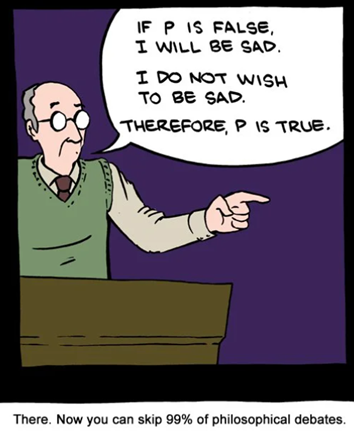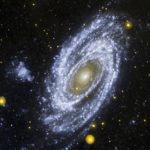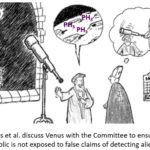Cite as: Špaček, J. (2021) “Null hypothesis: Term ‘life’ is not needed in biology”. Primordial Scoop, 2021, e0916. https://doi.org/10.52400/LOWG6383
Before we go any deeper in the Universal Theory of Life debate we need to examine the following null hypothesis: ‘Life’ exists only as a concept. We mistakenly assume that ‘life’ exists independently of our culture as a natural phenomenon, just like we did with ‘luminiferous aether’, ‘preformationist’s homunculi’, and ‘vital force’. A theory of life is as useful as a theory of ‘phlogiston’.
The term psychology (from Greek psyche-logia; the study of the soul) was coined around the 1600, when scientists in general believed in the objective existence of a soul. As the scientific understanding of the human mind deepened, it evolved away from dualism. This transition away from dualism was less complete with the lay population, which to this day holds some who still believe that humans have two components; a material body guided by an immaterial soul.
Modern scientists abandoned the term soul and no longer use it to describe cognitive processes. They could have redefined soul to suit our current understanding, but they chose not to do so. I suspect they stopped using the term soul to avoid confusing lay people and specialists from different cultures. These days there seems to be no utility in trying to mold the term soul to fit current understanding of cognitive processes. Psychology (and mind science in general) did not lose any credibility by abandoning the problematic term that named their field. To the contrary, abandoning the term soul was a positive move for psychology, which gained utility and clarity by doing so.
The term biology (from Greek bios-logia; the study of the life) was coined around the 1600, when scientists in general believed in the objective existence of life. Unlike cognitive scientists, biologists for some unexplained reason still cling to the term life, despite their inability to define life, despite its cultural baggage confusing lay people and scientists alike, and despite the negative utility of this term.
Many articles and books try to define life. Authors try to mold their definition of life to fit all of the author’s pet examples of life, while excluding systems that the author (usually a priori and arbitrarily) deemed inanimate. Hence, by some definitions, the Horta from Star Trek would be life if found in our universe, while others do not consider viruses to be life, despite genetic analysis of giant viruses showing that they are related to eukaryotes and, from a phylogenetic perspective are forth domain of life on Earth. Some authors seek more objectivity, defining life first and only afterwards checking which systems fall into their newly designed definition. Some of these authors were criticized for giving life status to whole biospheres or computer simulations. Despite an uncounted number of attempts to define life, to this day there is no consensus among scientists, perhaps because they use their “gut feelings” to determine the line between life and non-life.
Those who define life defend their hobby by claiming that it is required to inform astrobiologists in their work. My brief interactions with the astrobiological community suggested that astrobiologists are actually NOT looking for life. Admissions are difficult to extract, but a neutral observer finds few among NASA’s astrobiologists who would be disappointed to discover by definition non-life complex system capable of intentional behavior and/or adaptation. Imagine following situation:
“Astrobiologist discovered a flotilla of intelligent machines bound towards Earth. Unfortunately, these are no longer capable of Darwinian evolution and hence these are not life forms by definition conceived by the highest authority in the field. Therefore, this discovery is useless. Further, public announcement of this discovery confused public. As a consequence, astrobiological department funding will be cut.”
OK, I know. The “argument from the complex side”, where systems exceed boundaries of life definitions by getting too advanced for our anthropocentric understanding, was an easy target. You might say that a life definition is necessary to distinguish between life and non-life at the least complex side, where the border between chemistry and life is pretty fuzzy. I believe that this idea is also wrong, illustrated by following examples:
“Astrobiologists discovered yet unknown chemistry happening in the atmosphere of gas giant. This discovery broadens our understanding and will allow for new types of industrial chemical processing. The central committee of experts on life definition decided that these chemical cycles are not life. Therefore, astrobiologists making this discovery will be banned for life from life research.”
Or
“We’ve discovered a planet at the stage of RNA world! No cell to be found anywhere. By consensus of the majority of the Life council participants voting on the final definition of life, self-replicating evolving RNA is not life. Hence there is no reason to study this planet anymore!”
As illustrated by these absurd examples, there are more important attributes to look for than ‘life’ in the universe. Humans are looking for (a) things that can threaten us and (b) things that deepen our understanding of reality. Aliens are important not because they are ‘life’, but because they can be a threat or because we can learn from them.
The reason why we perceive life as a special state is based on our emotions and our need to feel more special. Putting an object into life category or not putting it there tells us more about us and our culture then about the categorized object.

Reproduced from smbc-comics.com
For clarity, astrobiologists should stop searching for ‘life’ and instead look for ‘replicators’, ‘systems capable of Darwinian evolution’, ‘single cell organism fossils’, ‘intentional behavior’, ‘high complexity’, ‘unlikely non-randomness’, ’machines’, ‘metabolism’, ‘yet unexplored chemistry’… These terms have more utility for science and humanity than precise definition of life.
Viruses are gaining new functions, escaping treatment and detection not because they are life but because they evolve. General human level artificial intelligence potentially arising in next century will be dangerous not because it will be life, but because it will be an unpredictable system.
Using exact terms instead of ‘life’ makes it clear what scientists look for in their projects and what they have found. No need for qualification by a central committee to decide if the found object / phenomenon it is life or not. Excluding ‘life’ from scientific reports would clarify meaning for scientists and public.
In the same way ‘phlogiston’ is not needed for the observed phenomenon of fire, ‘life’ is not needed for the observed phenomenon of Darwinian (or other forms of) evolution or other observable phenomena.
The same way psychologists got rid of the ‘soul’, biologist should get rid of ‘life’. Breaking this status quo will be hard since naming your project “search for life” is believed to make it more likely to be funded. Hence life might stay in project proposals and scientific reporting for a couple generations after most scientists stop believing in it, confusing generations to come.
I’m sure that many others share this view already, as life’s nonexistence is a simple idea which could be easily reached independently. Here are few examples I found during a quick search:
Ferris Jabr posted article “Why Life Does Not Really Exist” in Scientific American, saying:
“But on the most fundamental level, what is the difference between an inanimate machine and a living one? Do people, cats, plants and other creatures belong in one category and K’Nex, computers, stars and rocks in another? My conclusion: No. In fact, I decided, life does not actually exist.”
Andy Ellington said in his blog post “On origins“:
“To wit: there is no such thing as origins of life, because there is no such thing as life. Life is not a meaningful scientific term. It is a term for poets, not scientists. I think this began to become evident to me as I watched my peers unsuccessfully try to define this term, over and over. Now, this could mean that there is a very deep problem here, a problem whose solution has somehow eluded philosophers and scientists for thousands of years. Or it could just mean that it’s a stupid question. I have finally come around to the latter position.”
This article is based on my talk “Life Exists Only as a Concept” at the workshop entitled “Informational Fundamentals of Life: Genomes and Languages.” Summarized in Czech and Slovak Linguistic review 1/2014, which I concluded with:
“Accepting life non-existence is the next step in our unpopular journey from the anthropocentric view of the Universe.”
On May 24 2022 Carol Cleland provided a response to this, refuting the proposed idea: https://primordialscoop.org/2022/05/24/why-astrobiologists-should-not-get-rid-of-the-term-life/




Back to you Steven. Since your specialty is chemistry, in your rebuttal please explain what 18th century naturalist had to do to convince his still believing fellows about the non-existence of phlogiston.